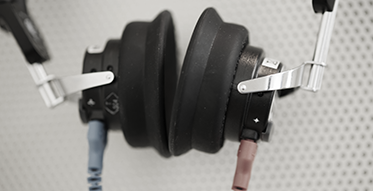Hear Your World Better
Tips for Communicating with Your Family Who Has Hearing Loss
Get their ATTENTION BEFORE you start speaking.
Say their NAME or gently touch them on the shoulder or arm if appropriate. This allows their brain to ‘get ready to listen’.
SLOW DOWN your speech and SPEAK CLEARLY.
Repeat what you’ve said in a DIFFERENT WAY instead of just talking louder (which can distort their speech and mouth movements).
Drop your voice to a lower pitch if possible.
REDUCE DISTRACTIONS by turning down the TV, music or moving to a quieter location
BACKGROUND NOISE makes listening with hearing loss much more difficult
FACE THEM and MOVE IN CLOSER when you are speaking to them
They can benefit from READING YOUR LIPS and your facial expressions and body language
WRITE down words on paper or on your phone or iPad if needed
Write down the IMPORTANT WORDS to help clue them into the context
BE OPEN to using a DEVICE to help them if they have one, a microphone or FM for example
Generally, you simply need to SPEAK INTO THE MICROPHONE and the sound will get picked up by their hearing aid or headset
ENCOURAGE them to get their hearing checked every two years.
ENCOURAGE them to get their hearing checked every two years. Remember that hearing aids are like glasses, our prescription changes over time.
Click to Learn More about Each Staff Member
We are each here working hard to help you hear your world better!








